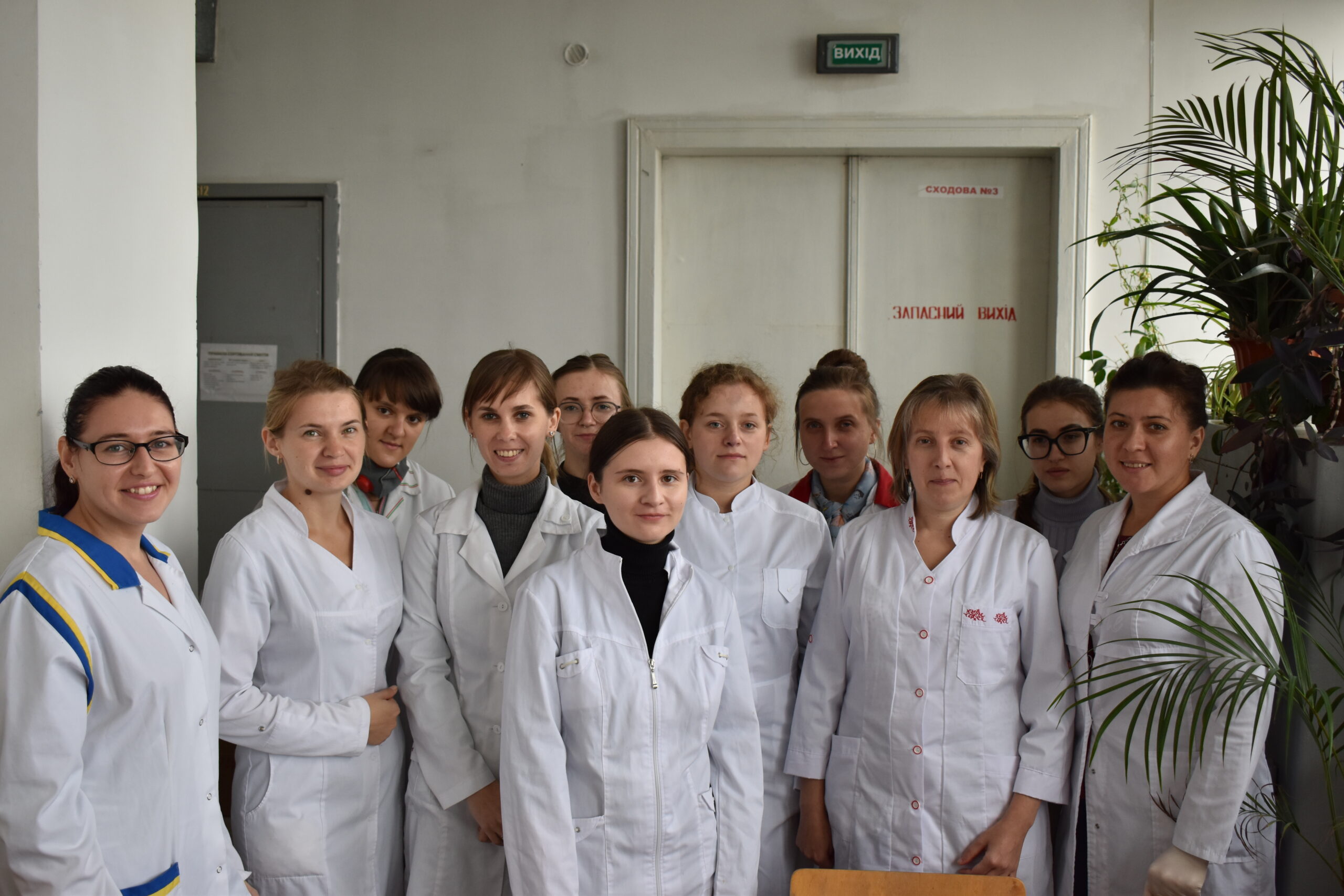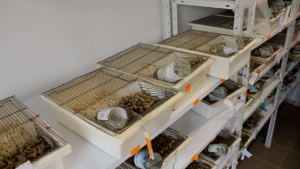
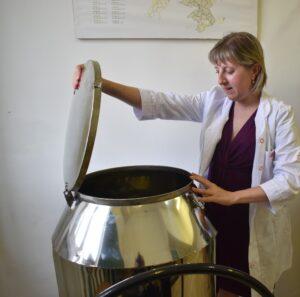
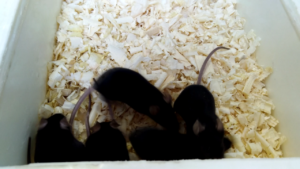
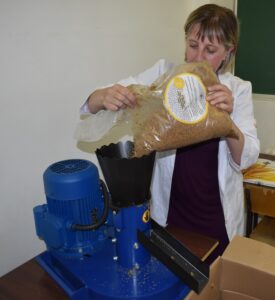
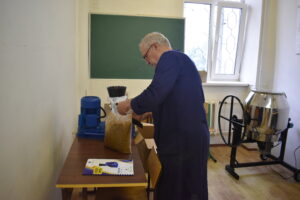
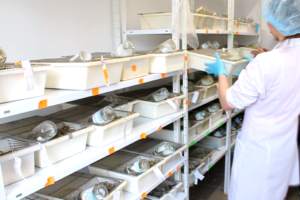
Over the last decades, the shift in age distribution towards older ages and the progressive aging which is observed in most populations have been paralleled by a global epidemic of obesity and its related metabolic disorders, primarily, cardiovascular diseases and type 2 diabetes. According to the World Health Organization, in Ukraine, 21.3% of people suffer from obesity, and 53.5% are overweight. At the same time, the number of people over 60 years will be more than 25% of the total Ukrainian population by 2025.
To meet these challenges, our laboratory at Vasyl Stefanyk Precarpathian National University started to study the anti-aging properties of different natural and synthetic compounds. Recently we started to study anti-aging and anti-obesity effects of some individual natural compounds (ferulic acid, alpha-ketoglutarate) and plant extracts (e.g., Rhodiola rosea rhizome and Chamomile flower) on mice. The implemented project is partially funded by the National Research Foundation of Ukraine (project registration number 2020.0 /0118) under the theme “Intermediates of phenylpropanoid pathway as substances to prolong lifespan and healthspan”.
During the realization of the project, we faced the problem of quality of food for mice and how to add and control the amount of food additives consumed. The method of gavage (forced feeding of mice) is not very suitable for long-term experiments - it is more convenient to add food additives to the basic food. The laboratory food is sold in solid pellets; therefore, further introducing additional components in it is impossible.
Thanks to a small research grant from the US-Ukraine Foundation Biotech Initiative, we obtained a food mixer, a feed granulator and basic food ingredients to be used in our research on anti-aging and anti-obesity effects of some individual natural compounds and plant extracts.
The feed granulator and mixer helped us to solve this problem and we are able now to prepare food for the mice ourselves. This may not reduce the cost of food, but we will be able to prepare mouse food of higher quality and in the composition we need. We will also be able to prepare various experimental diets, changing the content of macronutrients (carbohydrates and fats). The individual ingredients for food preparation will accelerate the launch of new experiments. In addition, we will use the equipment and food ingredients to prepare special food for the reproduction of mice to obtain a sufficient population of mice for further experiments. Thus, thanks to the new equipment, the cost of food, time and human resources will be reduced and the planned experiments will be carried out better and faster.
Purpose of the research
To study the ability of some natural compounds (ferulic acid, alpha-ketoglutarate) and plant extracts (e.g. Rhodiola rosea rhizome and Chamomile flower) to slow down aging and metabolic disturbances in mice fed with the basic diet and high-fat diet.
Materials of the research
C57Bl6/J mice fed with the standard chow and high fat diet supplemented with different food additives.
Tasks
- To obtain sufficient populations of mice of young and old ages at feeding with the basic food.
- To test behavior reactions, clinical blood biochemistry, tissue damages and oxidative stress parameters in young and older groups of mice fed with the basic food.
- To study effects of the selected food supplements added to the basic food on behavior reactions, clinical blood biochemistry, tissue damages and oxidative stress parameters in middle-aged and old groups of mice.
- To study effects of the selected food supplements added to the high fat diet on behavior reactions, clinical blood biochemistry, tissue damages and oxidative stress parameters in young mice.
Expected results
We expect that healthy aging (on the basic food) and accelerated aging (on high fat diet) will lead to locomotor and spatial memory impairment, metabolic disturbances, oxidative stress development and tissue damages in mice. At the same time, we expect that the addition to the food of natural dietary supplements (ferulic acid, alpha-ketoglutarate, extracts from R. rosea and chamomile flowers) will slow down age-related and high-fat diet induced changes in the studied parameters in mice. The molecular mechanisms of the dietary supplements will be revealed in more detail, which provides a basis for their further study as potential drugs in preventing the development of age-related diseases. We predict that the obtained results will give a possibility to predict the presence of anti-aging action in other plants that contain similar substances.

